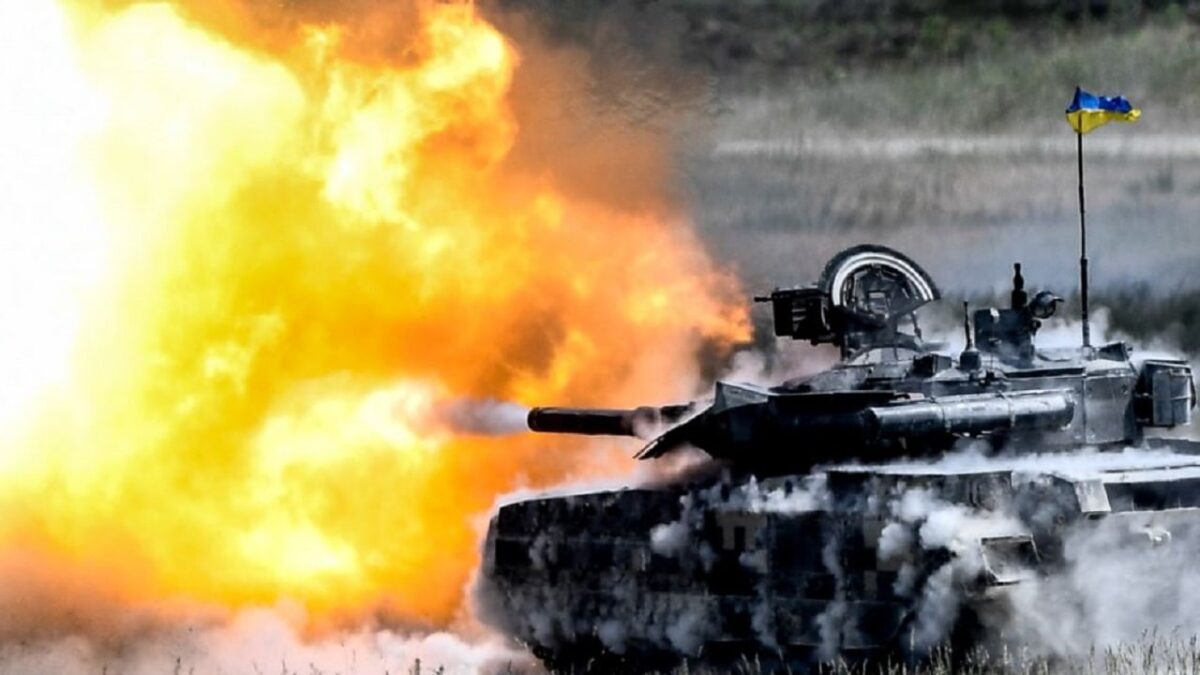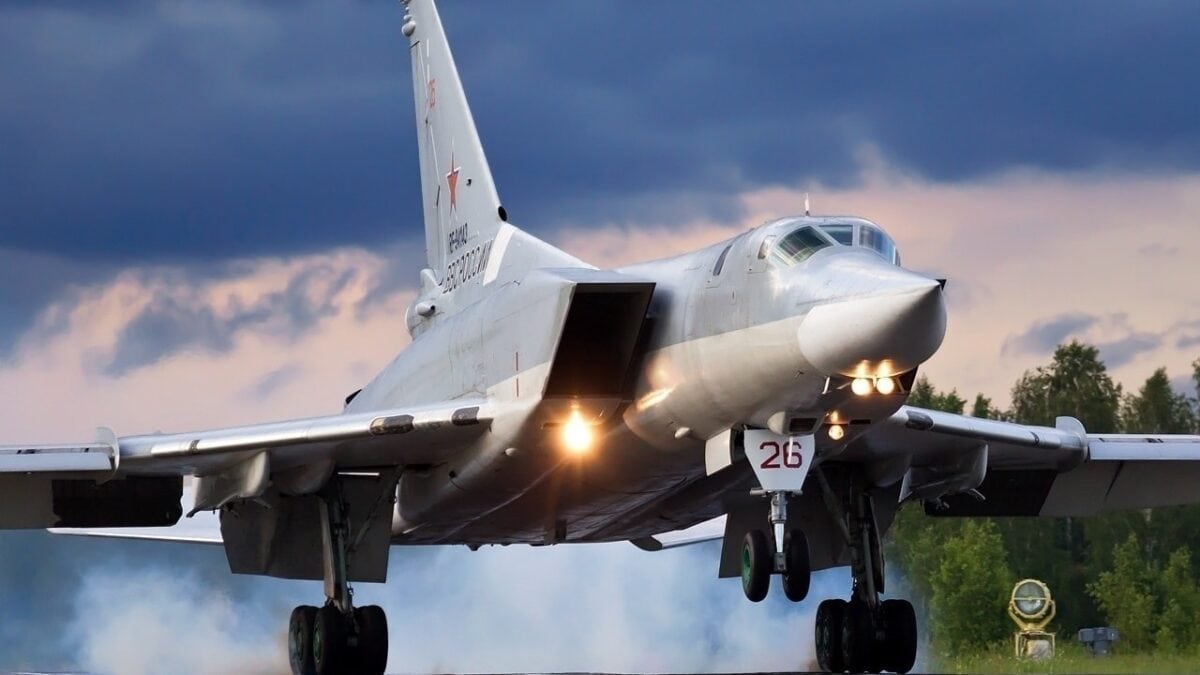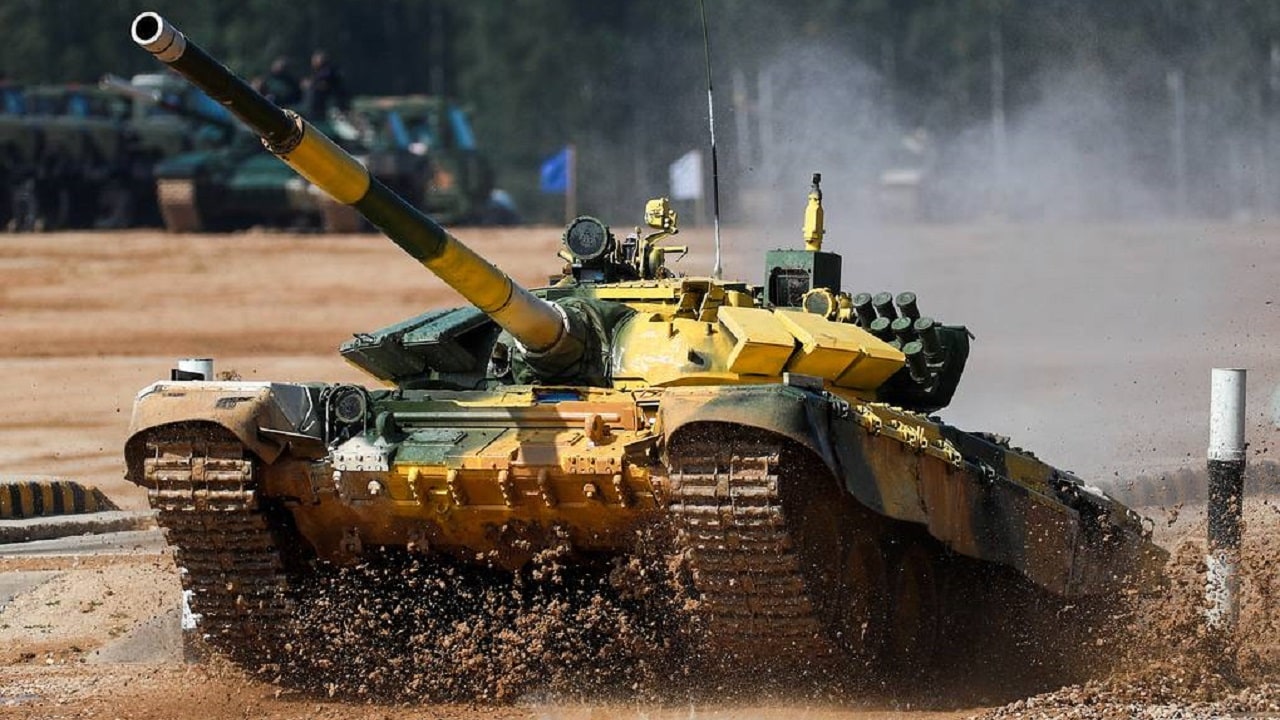Ukraine Hits Russian Command Post in Kherson, Two Generals Killed – The Ukrainian Ministry of Defense’s Chief Intelligence Directorate claimed in a released statement that they conducted a strike on a Russian command post in the southern region of Kherson that resulted in the death of two Russian generals and the wounding of another.
Ukraine claimed that Yakov Rezantsev, the commanding general of the 49th Combined Arms Army was reportedly among the dead. The Russian military had no comment on this action.
“On April 22, 2022, the Armed Forces of Ukraine struck a devastating blow at a forward command post of the 49th Combined Arms Army of Russian occupation troops located a short distance from the battle line in the Kherson region,” the statement said. “The result: The Field Control Point of the 49th Combined Arms Army was destroyed. Two occupier generals were eliminated, and one was seriously wounded and evacuated in critical condition.”
That statement was confirmed by presidential adviser Oleksiy Arestovych who said during an interview that 50 senior Russian officers were in the command center when it came under attack. But he didn’t elaborate on any casualties.
“Their fate is unknown, but I think it must be miserable,” Arestovych said.
During the early stages of the Russian invasion, the Black Sea port city of Kherson was the first city to fall as Russia was trying to use it as a launching point to sweep into Odesa. Kherson is an important cog in the already stretched thin logistical lifeline to the Crimea to the south. The Russian military is using the city as a rail link allowing them to move artillery and heavy equipment into the region.
The Russian advance on Odesa has been stopped by increased Ukrainian resistance around the city of Mykolaiv, which has been heavily shelled by the Russians, especially in the civilian areas. Fierce counterattacks pushed the Russian troops back in the retaking of several smaller villages in heavy fighting.
Why Are So Many Russian Generals Being Killed In Ukraine
The heavy fighting in Ukraine has taken a heavy toll on Russian troop formations as well as with their general officers. If this latest claim by the Ukrainians is true, that would push the number of Russian generals killed in two months of combat to 10.
In contrast, during the American 20 years in Afghanistan, only one general was killed and that was from an inside “green on blue” attack by an Afghan soldier who was ostensibly an ally.
So, why are so many Russian generals dying? The answer has several factors that are the cause.
The first is the lack of junior leadership which is and has always been a glaring lack in both the Soviet and Russian militaries. In the West and especially in the US, the non-commissioned officers (NCOs) are the backbone of the Army.
NCOs in the Western militaries have the authority and the duty to make critical decisions at the tactical level during combat operations. The Soviet/Russian system is a top-down driven level of leadership where senior officers keep junior officers in perpetual fear so that there is no independent thinking or decision making. The NCOs as we have in the West are by and large non-existent in the Russian military.
Loyalty, Not Expierence
Senior leadership under the Putin regime follows the same principle as in the Soviet model that he so passionately pines for. Senior leaders are chosen and put into positions of power not on their leadership attributes, but on their loyalty to Putin. This goes all the way to the top of the food chain. Putin chose Sergei Shoigu as the Russian Defense Minister and he had no military experience. His biggest qualification is his unquestioned loyalty to Putin.
This lack of leadership at the junior levels has forced Russian generals to move to the front of advances and take an active role in operations that would be handled by officers of much lesser rank in the West. This has the effect of hindering the overall plan as in the West, general officers would be farther behind the front and able to see the entire tactical situation and be better able to allocate troops and resources to where they are most needed.
This lack of leadership is apparent in the utter lack of the understanding of the combined arms approach that in the West is practiced to a fine art. Russian armored formations have no coordination with air assets and have run forward of artillery support while sticking to the roads. This has led to horrendous casualties.
Due to the rampant corruption, the Russian military has only a fraction of the Azart encrypted radios that protect their communications. Many Russian commanders are then having to resort to commercial hand-held radios and even unencrypted cell phones which makes them easy prey to jamming and pinpointing for strikes by artillery.
In a report in Foreign Policy, a European diplomat said that Russian commanders aren’t getting enough communications from the front forcing them forward. “They’re having to go to the front line to make things happen, which is putting them at much greater risk than you would normally see.”
Another factor is the invaluable lessons learned factor of warfare. During the Russian invasion of Ukraine in 2014, the Ukrainian military was taught a painful lesson, they surrounded their command posts with tanks and troops making them easy targets for Russian jamming and artillery strikes. They were sighted by Russian surveillance drones and were hit hard. The Ukrainians learned from this lesson. The Russians forgot about it. And are now paying for it.
Since the start of the war, no fewer than 31 Russian command posts have been hit and destroyed by Ukrainian air and artillery strikes.
How the Ukrainians are doing so well at locating the Russian command posts may be a combination of them using unencrypted cell phones as well as getting shared intelligence from Western militaries. The post in Forbes mentioned that a British Royal Air Force RC-135 signals-intelligence aircraft was flying over the Black Sea, only about 150 miles from Kherson, around the time of the attack on the 49th CAA headquarters. The British could have located the command post and shared it with the Ukrainians, although that is just conjecture.

Ukrainian tank firing. Image Credit: Creative Commons.

Tu-22M3M from the Russian Air Force.
However, the Russians are paying a heavy price for their refusal to heed the bloody lessons that they made the Ukrainians pay for eight years ago. And that is being paid back to them in spades during the invasion. And it isn’t likely to change soon.
Steve Balestrieri is a 1945 National Security Columnist. He has served as a US Army Special Forces NCO and Warrant Officer before injuries forced his early separation. In addition to writing for 19fortyfive.com, he has covered the NFL for PatsFans.com for more than 10 years and his work was regularly featured in the Millbury-Sutton Chronicle and Grafton News newspapers in Massachusetts.

